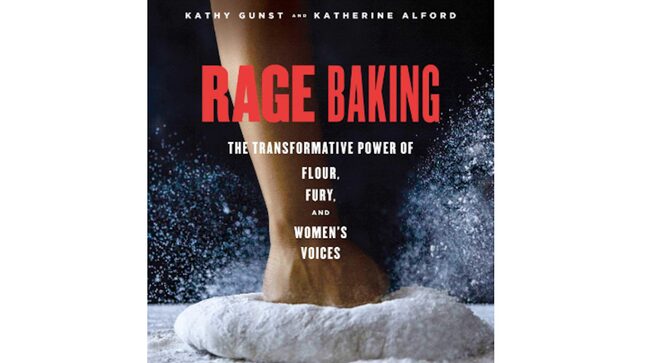The White Editors of 'Rage Baking' Overlooked the Black Woman Who Popularized the Term
Latest

On the surface, the idea of “rage baking” seems commonplace enough: You’re livid about something; you bake it off. But if you’re going to publish a politicized cookbook on how “baking can be an outlet for expressing our feelings about the current state of our society,” you might want to give credit to the person who brought the term into the mainstream.
Earlier this month, Simon & Schuster released a cookbook called Rage Baking: The Transformative Power of Flour, Fury, and Women’s Voices. It was edited by Katherine Alford, formerly of the Food Network, and NPR’s Kathy Gunst, and includes contributions from a wide variety of food industry professionals as well as writers and artists. The description encourages women “to use sugar and sass as a way to defend, resist, and protest.”
But two weeks after Rage Baking was published, blogger Tangerine Jones wrote something of her own, a Medium post titled “The Privilege of Rage,” where she pointed out that she first began posting on Instagram using the phrase back in 2015, and how she was mysteriously overlooked in the process of the book’s creation.
Per Eater:
Jones says she was never contacted about the book, but after fans of hers responded to Gunst’s use of #ragebaking on Instagram, she received a DM from Gunst and Alford attempting to explain themselves. In Jones’s screenshots, Gunst and Alford (who are both white) say they saw the phrase “rage baking” used independently for years, and that the book is meant to be a “celebration of this movement.” But Jones writes that this “celebration” erases her use of the phrase as specifically related to racial injustice, and asks “if all of this research around Rage Baking had been done prior to the book’s publication and the intention was to be a celebration of feminist women’s voices, why wasn’t I acknowledged for my efforts or contacted?”
Since Jones’ post, several of the books contributors have expressed regret over their participation, or have asked that readers amplify Jones by crediting her work and make donations to the organizations she listed on her post.
As Jones told Eater, there’s an implicit imbalance between white and black women when it comes to writing about rage:
“There are huge consequences when [black women] express our rage because we’re seen as threatening,” she said in an email, even noting that her post likely wouldn’t have been as popular “if I wasn’t code switching and couching my profound disappointment and anger in ‘eloquent’ ways.” And while she’s heartened by the responses she’s been getting, “I don’t think the publishing world is ready to deal with or package black women’s anger in ways that are easily digestible and commodified.”
In a statement to Eater, Alford and Gunst wrote that the concept of “rage baking” developed “authentically and organically,” adding,
The intent has never been to claim ownership of the term “rage baking,” nor to erase or diminish the work of others using the phrase. Any attempt to lay claim to the term “rage baking” denies the universal pull this concept/movement has for anyone who has witnessed injustice and has channeled their outrage in the kitchen—the very reason it made for a meaningful title of the collection.